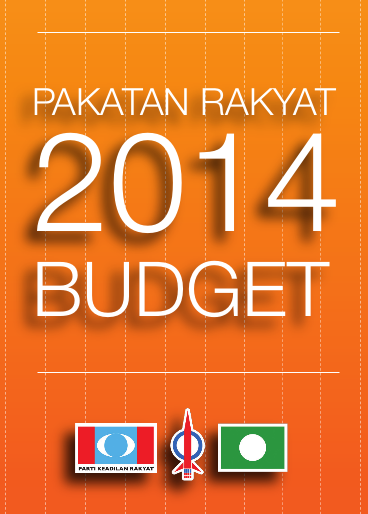New cabinet further entrenches 'Prime Ministerial dictatorship'
With the further entrenchment of Najib’s "Prime Ministerial dictatorship", the new Cabinet is very much irrelevant. With such a bloated Prime Minister's Department and with the Prime Minister also taking the portfolio of the Finance Minister, there is very little need for a Cabinet.
The Westminster tradition conceives the role of the Prime Minister as "first among equals" in a Cabinet. The Cabinet is supposed to operate as a collective of equals who exercise check-and-balance among Cabinet colleagues and on the Prime Minister's powers.
More than a third of the 32-member Cabinet are officially operating from the Prime Minister's Department - namely the Prime Minister, the Deputy Prime Minister and eight full ministers. This is an increase from the previous five ministers in the Prime Minister's Department in the previous Cabinet.
The powers concentrated in the Prime Minister’s Department in Malaysia have certainly become the envy of other Commonwealth prime ministers. With the new Malaysian Prime Minister’s Department being responsible for almost everything under the sun, there is practically no need for a Cabinet any more.
The Prime Minister's Department is responsible for the Malaysian Anti-Corruption Agency, Auditor-General’s Office, Election Commission, Human Rights Commission, Public Complaints Bureau, and Public Service Commission, which matters should have been placed under parliamentary oversight.
The affairs of the Parliament should not be placed under the purview of the Prime Minister's Department but should be managed by a joint/bi-partisan House Committee, in keeping with the doctrine of check and balance.
Further, I am of the view that the task of maritime enforcement should be handled by the Home Ministry, while public transport should be placed under the Transport Ministry.
In the areas of finance and economics, Prime Minister Najib Razak exerts total control with no scrutiny.
The Prime Minister's concurrent portfolio of Finance Minister is the continuation of a bad precedent set by Dr. Mahathir Mohamad after he fell out with all his Finance Ministers, namely Tengku Razaleigh Hamzah, Tun Daim Zainuddin and Datuk Seri Anwar Ibrahim.
In the Commonwealth, it is unheard of that a Prime Minister would also hold the position of the Finance Minister or Treasurer for an extended period.
The role of the Finance Minister in a Westminster democracy is to serve as the de facto Number 2 in the Cabinet with explicit responsibility to monitor and scrutinise the performance of all other ministries through budgetary checks and financial audits. This essential component is sorely lacking in the Malaysian Cabinet.
The Prime Minister also chairs the Economic Council, a new entity established after the 2008 general election, which bypasses the Cabinet but made all the economic decisions on behalf of the Cabinet, hence further eroding any remnants of checks and balances within the Cabinet.
While the "Prime Ministerial dictatorship" consolidates the power of Prime Minister Najib Razak, it is done at the expense of the nation's best interests.
